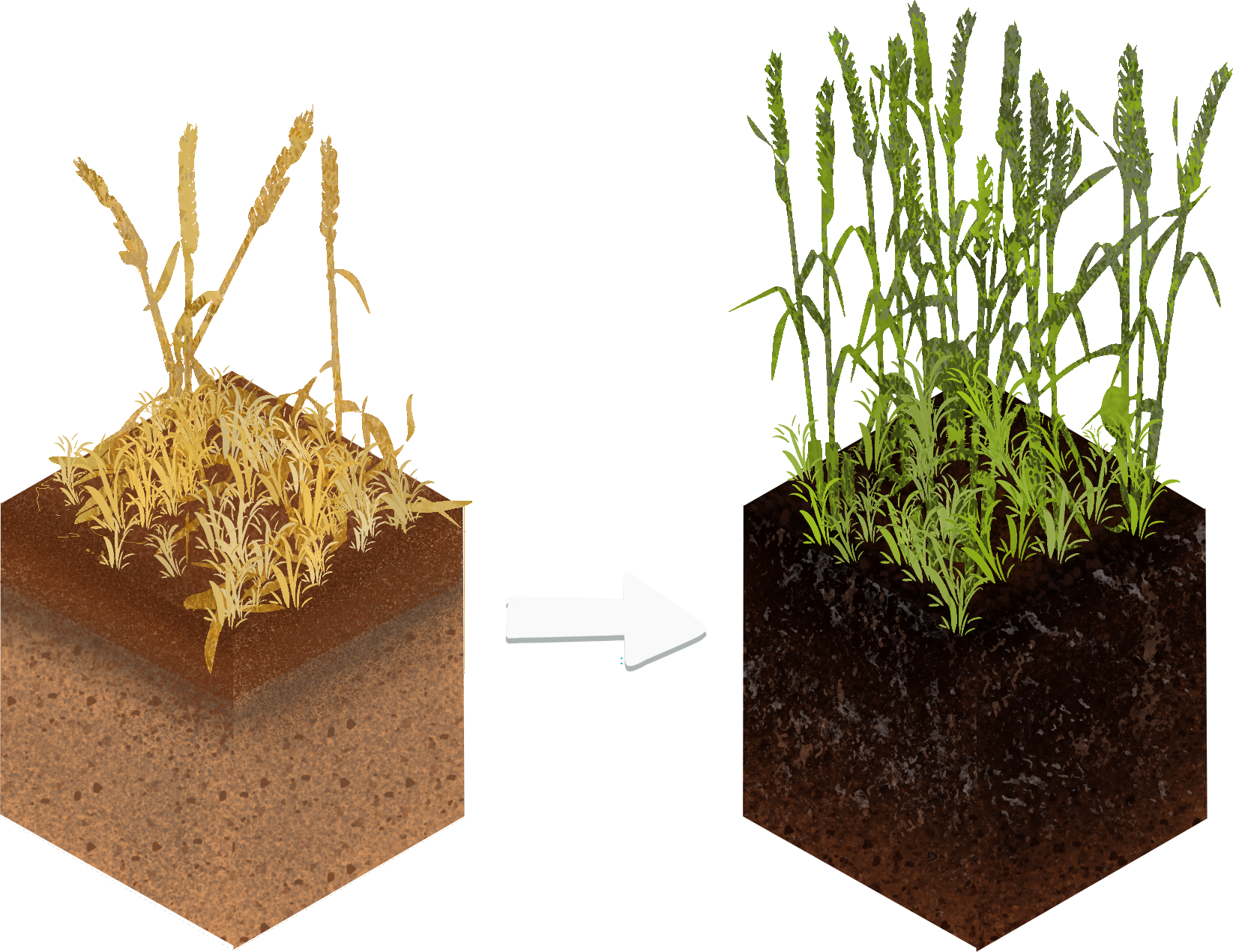Climate Change Adaptation
Adaptation refers to changes in human and natural systems in response to actual or expected climatic change and its impacts. EJP SOIL investigated climate changes, including extreme events effects on agricultural soils within several research projects.
Management options evaluation
Soil, crop, and water management at the field and farm levels are studied and modelled to understand how management practices affect soil functions under both current and future climatic conditions (e.g. Blanchy et al. 2023; Coucheney et al. 2024). This understanding helps in developing adaptation measures and strategies.
Peer reviewed articles
Policy Briefs and Notes
Datasets
Lærke, P. E., & Rodriguez, A. (2024). INSURE DK Vejrumbro 2021_22 [Data set]. Zenodo.
Webinars & Educational Materials

Illustration by Laura Laroche
